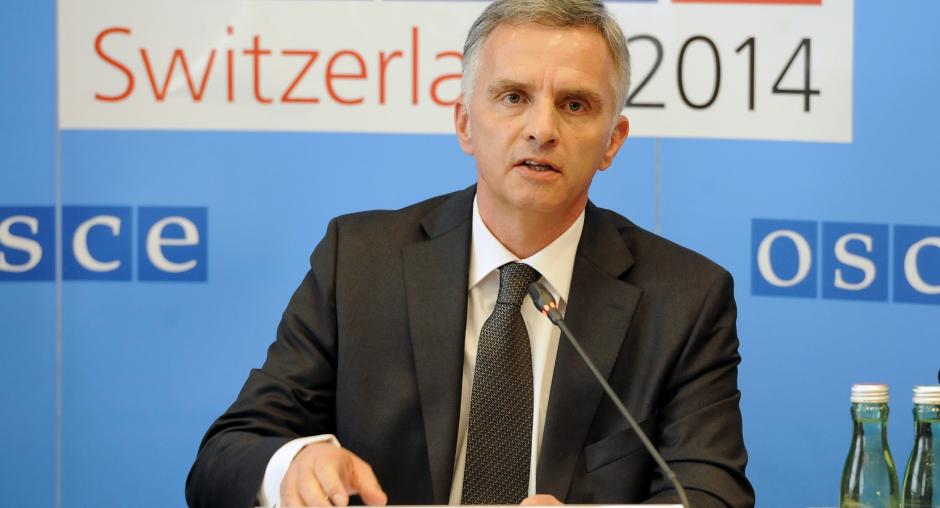OSCE to step up its activities in support of Ukraine, Swiss Chair says

BERN, 20 March 2014 - Swiss Foreign Minister and OSCE Chair, Didier Burkhalter, emphasized the importance of various ongoing OSCE activities in order to support Ukraine to overcome the crises. At the same time, he underlined that the Organization is gradually expanding its presence on the ground.
The OSCE is supporting Ukraine in various ways. The OSCE Office for Democratic Institutions and Human Rights (ODIHR) today formally opened an election observation mission for the 25 May 2014 early presidential election in Ukraine. 18 election experts will be based in Kyiv and 100 long-term observers will be deployed all over the country. On election day, 900 short-term observers will monitor the proceedings. A Human Rights Assessment Mission is in preparation: ODIHR, in co-operation with the OSCE High Commissioner for National Minorities, is making arrangements for deployment.
The OSCE launched a “national dialogue” project today. The project under the lead of Ambassador Hidajet Biščević of Croatia aims at facilitating dialogue between different parts of Ukrainian society and wants to contribute to a sustainable transition process, in particular addressing political, humanitarian and minority issues.
The Personal Envoy of the Chair, Ambassador Tim Guldimann, is returning from a visit to Eastern Ukraine, where he had the opportunity to discuss the situation with local authorities and civil society. The High Commissioner of National Minorities and the Representative on the Freedom of Media also visited Ukraine in the framework of their independent mandates in the last few weeks.
In addition, 30 OSCE participating States sent 56 unarmed military personnel to Ukraine in response to invitations by the Ukrainian authorities under Chapter III of the Vienna Document 2011 on confidence- and security-building measures.
Chair Burkhalter reiterated the importance of an OSCE Monitoring Mission to Ukraine as a particularly effective tool to support the country.
A prompt decision on its mandate is needed to ensure its rapid deployment, Burkhalter said. It was the responsibility of all participating States to make an effort and to work towards consensus, he added.
